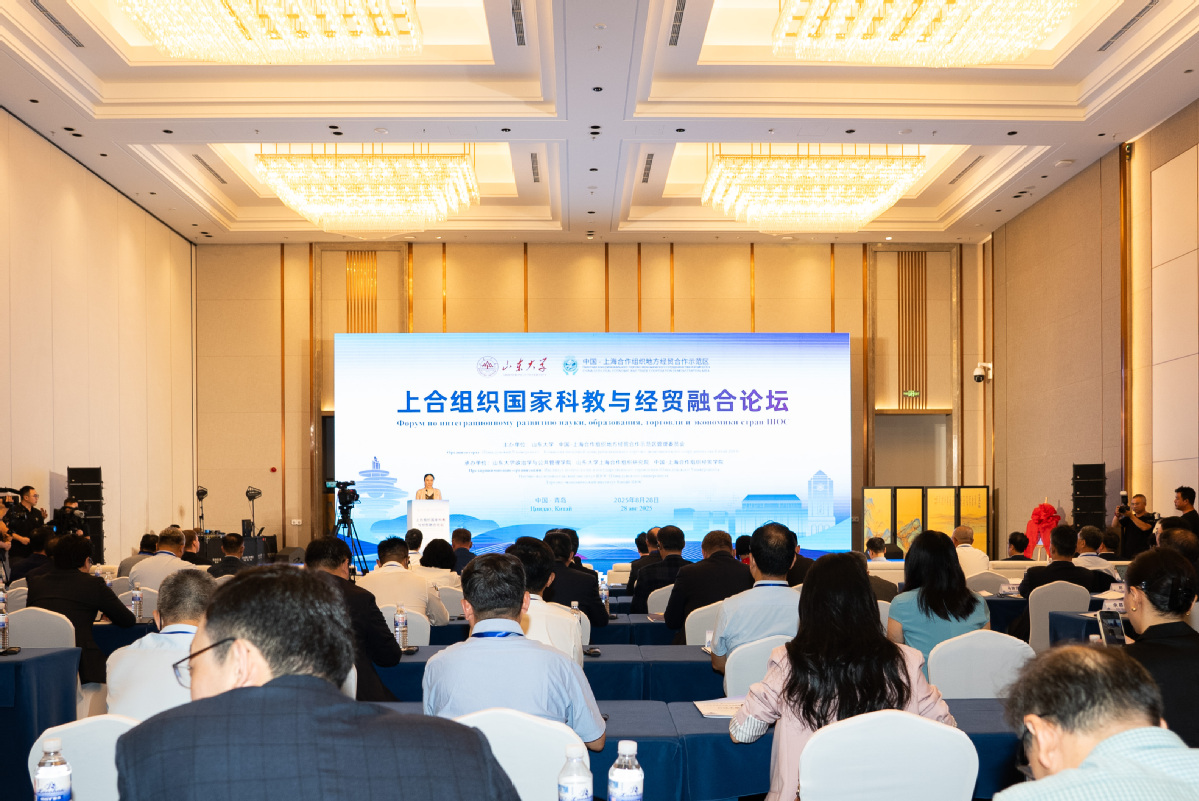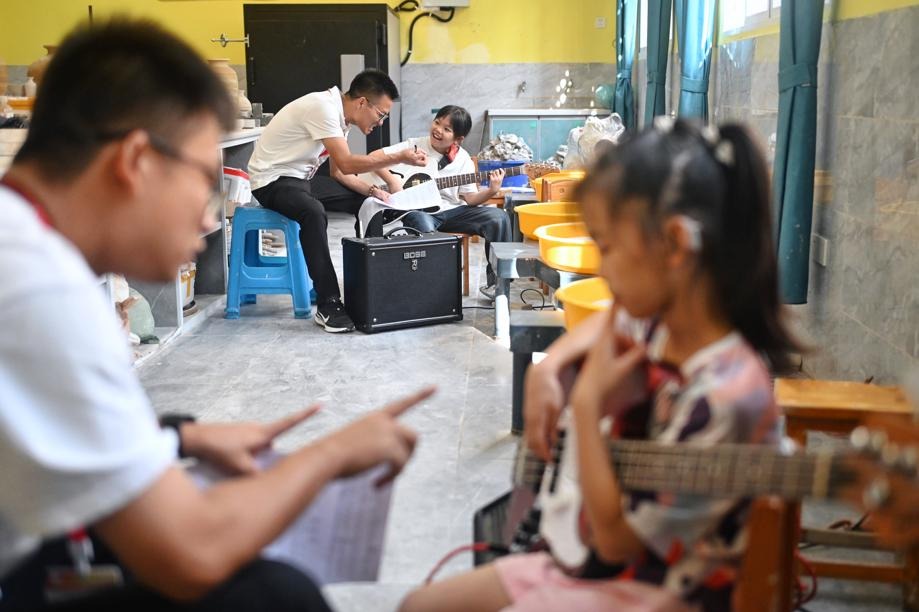New research bodies will boost education exchanges


Scholars and experts have advocated increased cooperation in education, scientific research and talent development to boost economic growth among the member states of the Shanghai Cooperation Organization.
Their call for collaboration came as new SCO joint research bodies were launched in Qingdao, Shandong province, on Thursday.
To support the Belt and Road Initiative and the SCO's broader goals, Shandong University has partnered with Russia's National Research Nuclear University MEPhI and Kyrgyz National University to establish two new research institutes, which aim to serve as high-level international platforms integrating academic research, talent development and policy consultation to support regional development and bilateral cooperation.
The institutes will concentrate on international security, economic cooperation, legal issues and cultural exchange by leveraging the academic strengths of Chinese and international universities. International teams comprising leading scholars, educators and students will gather to engage in interdisciplinary, strategic and applied research.
Their initiatives will include applying for international projects, publishing research and organizing academic conferences. Over the next three years, each institute plans to host an international academic conference annually, facilitate scholar exchanges and launch student exchange programs.
A joint research think tank platform was also inaugurated. The platform's founding members include 21 institutions such as Shandong University and the SCO Research Center of the Chinese Academy of Social Sciences. The platform is also open to applications from universities, research institutions and international organizations of SCO member states.
Ren Youqun, Party secretary of Shandong University, said, "We will enhance joint training programs, improve curricula and raise the quality of talent development to meet future technological and economic demands."
Ren also emphasized the importance of expanding collaboration in cutting-edge science, sharing research resources and turning scientific achievements into practical applications.
Dogdurbek Chontoev, rector of Kyrgyz National University, said: "In an era of global challenges and rapid technological change, these areas cannot exist in isolation. Their synergy enables us to find solutions that align with both national and international interests."
Dmitry Savkin, vice-rector of MEPhI, suggested developing online educational resources for SCO member states. His vision includes creating a collection of online courses on the culture, history and geography of SCO member countries, as well as free lectures showcasing each member state's contributions to humanity, to help young people better understand their neighbors.
The two research institutes and the joint research think tank platform were launched at a forum in Qingdao on the integration of science, education, economy and trade of the SCO member states. The forum was co-hosted by Shandong University and the administrative committee of the Qingdao-based China-SCO Local Economic and Trade Cooperation Demonstration Area.
- Drones make cleaning of high-rises safer, quicker
- Brain cancer drug cleared for phase III clinical trials
- China records 48.3% growth in visa-free entries in Q3
- Chinese researchers design microrobot for precise particle, cell delivery
- Intl vloggers explore cultural beauty of Pingyao Ancient City
- Butterfly farmer's business takes wing in remote village





































